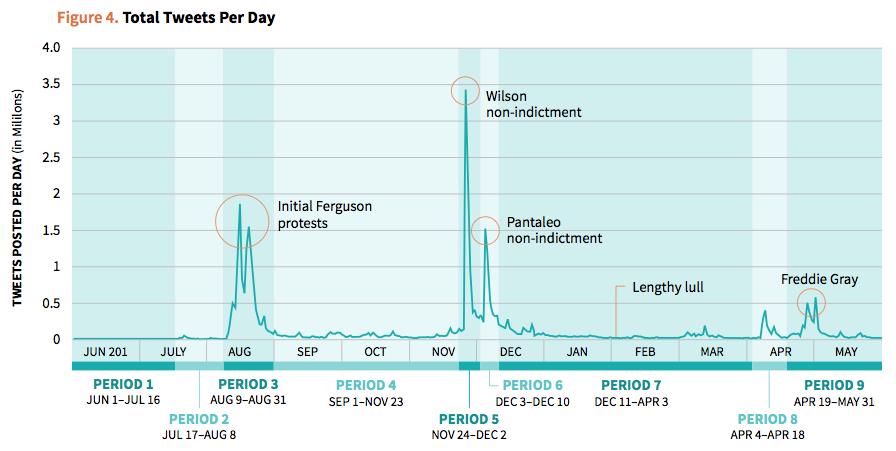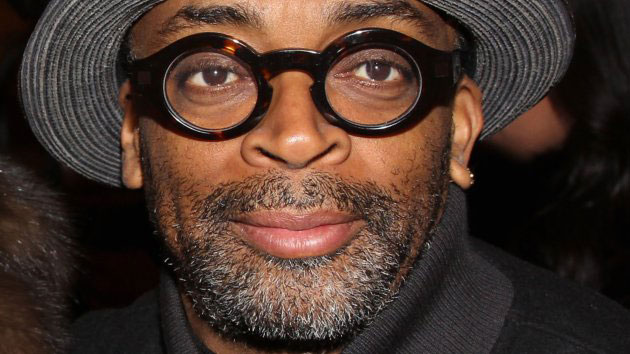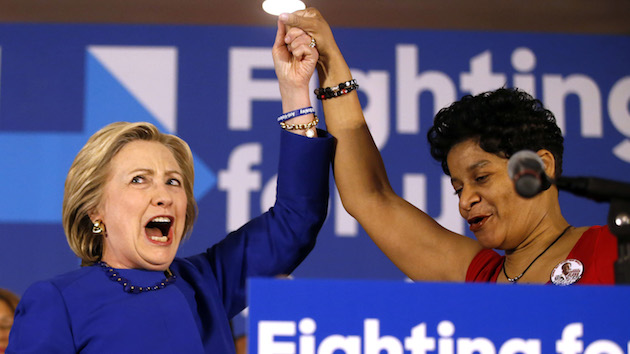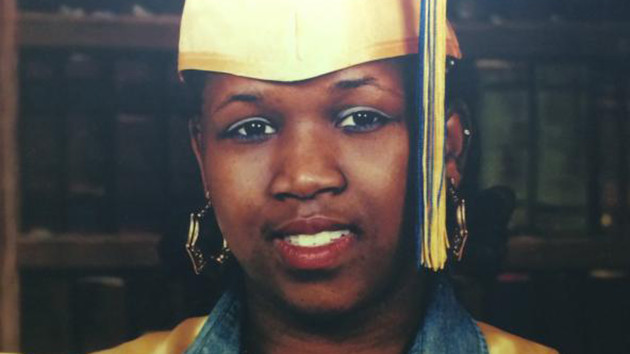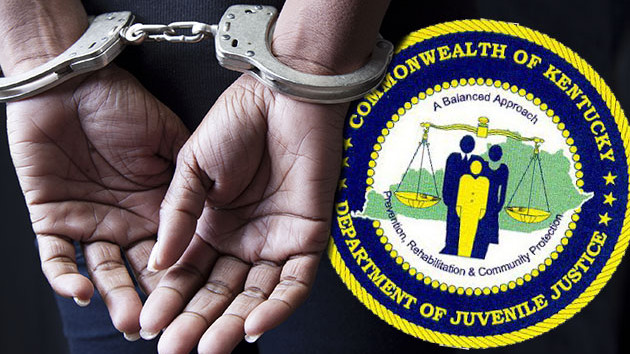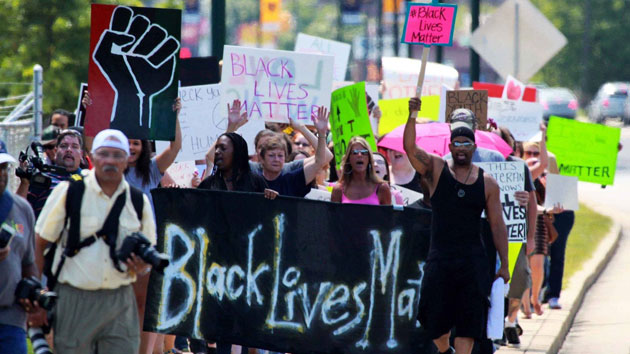
A Black Lives Matter protest.Derek Stiltner
Tweet early and often. That’s one takeaway from a new study showing that hashtag activism online can have real-world consequences. The study, from the Center for Media and Social Impact at American University, found that Black Lives Matter activists and their supporters have managed to drive the national debate on policing, in part because they tweet about it more often, and with wider reach, than mainstream news outlets or the conservative Twitter users who push a counter-narrative. The activists’ social media efforts, the researchers found, were essential in turning local incidents—such the shooting of Michael Brown by a police officer in Ferguson, Missouri—into national stories.
The researchers examined more than 40 million tweets that used one of 45 keywords and phrases, such as “black lives matter,” “Ferguson,” or the names of 20 African Americans killed by police in 2014 and 2015. The tweets were divided into nine time periods starting in June 2014—a month and a half before NYPD officers choked Eric Garner—and extending through May 2015, one month after the Freddie Gray-related unrest in Baltimore.
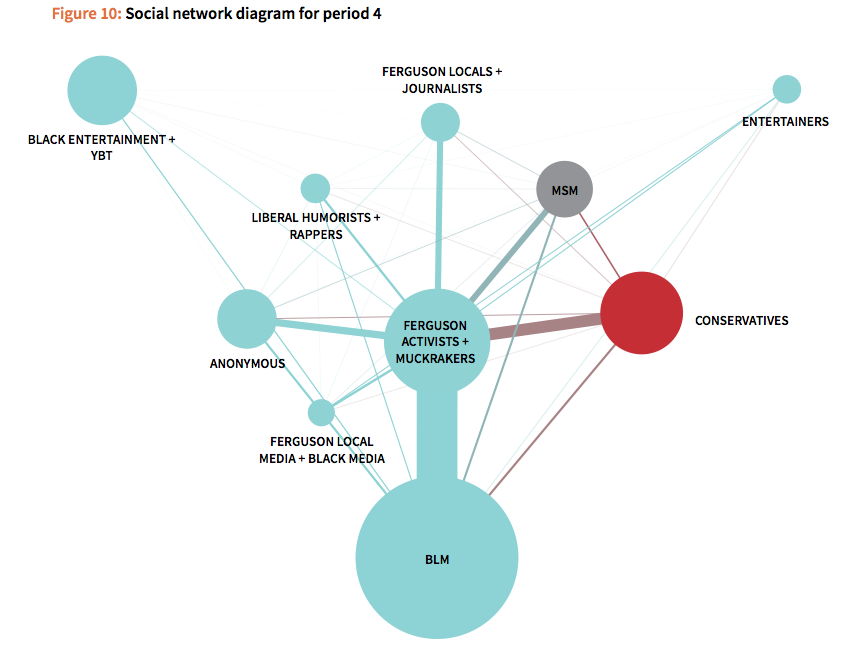
The study, titled “Beyond the Hashtags,” identified dozens of Twitter communities that used the 45 keywords frequently. Users within a community looked to the same subset of Twitter figures for information on police brutality and discussed the topic in similar ways. Among them were Black Lives Matter (whose hubs were activists like DeRay McKesson and Johnetta Elzie, and the writer Shaun King); the “multi-racial left,” hacktivist group Anonymous, the mainstream media, conservatives, black entertainers, and young black twitter users.
The communities associated with Black Lives Matter were consistently larger than those associated with mainstream outlets, and their most popular members were retweeted more often and reached a wider audience. This enabled the BLM activists to control the narrative on specific police cases, protests, and the movement as a whole, independent of mainstream news outlets, the authors determined. The BLM communities were also larger than their conservative opponents. Three quarters of the dataset consisted of retweets; only about 8 percent included direct mentions of other users.
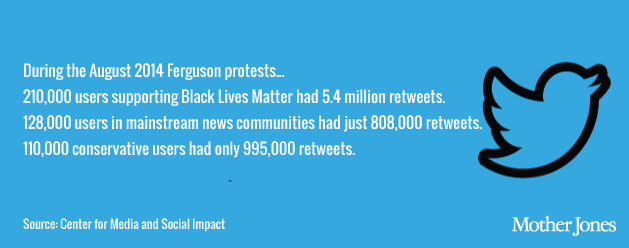
“The movement was able to circulate [its perspectives] largely on their own,” says study co-author Deen Freelon, a professor of communications at American University. That’s a break from the past, when social movements relied on mainstream news outlets to reach the masses. BLM activists often criticize news outlets for seeming to demonize victims of police brutality, or for shaping coverage around early police claims that have sometimes been proven false. Social media, Freelon says, has “to a great extent removed the middleman—the mainstream media—and allowed activists to talk directly to the publics that they are interested in communicating with.”
The protest voices dominated the larger web conversation, too. Because the most widely circulated tweets turn up in Google searches, so the results of a search involving the latest police shooting case are “influenced by the volume of activity of black voices,” says Charlton McIlwain, a professor of media, culture, and communication at New York University. “I think that’s where you get your impact—both in terms of the visibility, but also of the framing of events.”
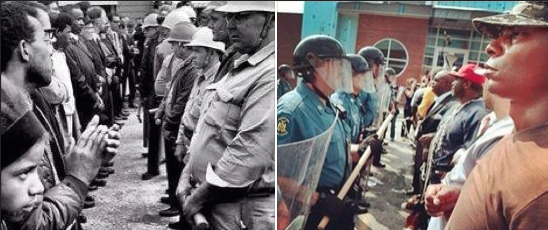
Activists and news outlets have distinct audiences, McIlwain adds. The activists are reaching protesters and supporters who are plugged into the movement, whereas news outlets are communicating “with people who probably are paying a lot less attention to the movement. Their voices are going to be heard a lot more by casual news consumers and people who are less informed.”
Mainstream news outlets accounted for a larger share of retweets and references during periods of street protests, but the reports often linked to activists’ or protesters’ social media posts showing pictures and video from the scene. “So those perspectives get imbedded in that way as well,” Freelon says. Some of the most widely shared posts were simply photos of the victims of police brutality. And the posts shared within the Black Lives Matter community often linked specific cases of police brutality to systemic racism.
“What social media and new media have allowed us to do is to control our own narrative instead of relinquish that power to other people—other people who don’t live in our communities, who weren’t on the ground in Ferguson, who have not faced these challenged,” Brittany Packnett, an organizer with Campaign Zero and a member of President Obama’s police reform task force, told me. That “is significant not only in the actual resulting narrative but in what it says about what this movement stands for: self determination—not just controlling our own narrative but controlling our own destiny.”
